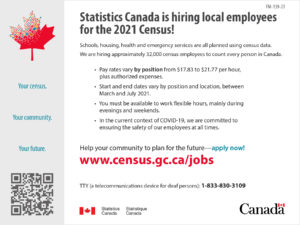Applications open for $12 million COVID-19 relief fund

The B.C. government is offering qualifying small businesses up to $7,500 to build or upgrade their online sales portals to help get through the COVID-19 pandemic.
Jobs Minister Ravi Kahlon announced the “launch online grant” program, with a portal at launchonline.ca open to take applications. The $12 million online sales fund is the second small business assistance program from the B.C. government’s $1.5 billion StrongerBC fund, announced before last fall’s election.
“Business practices that we thought were five to seven years away are here now,” Kahlon said Feb. 3, with online sales being the way for many to keep going.
Also the BC government announced yesterday, March 4th that they have “New Program Criteria” for their Small and Medium sized Business Recovery Grants. They are extending the grants to August 2021 or until funds are fully expended. This could also help Princeton small business in a new way. More information is available here: Small and Medium Sized Business Grants








